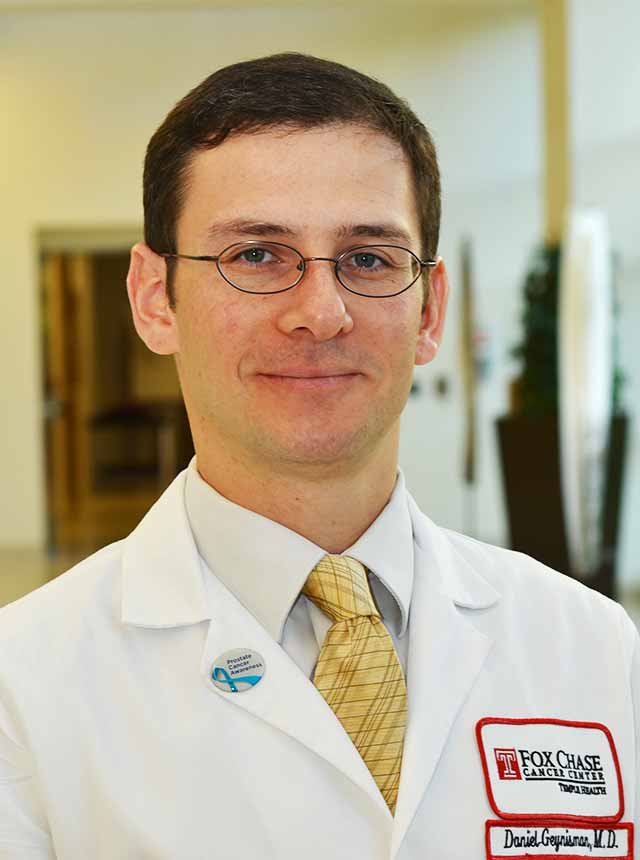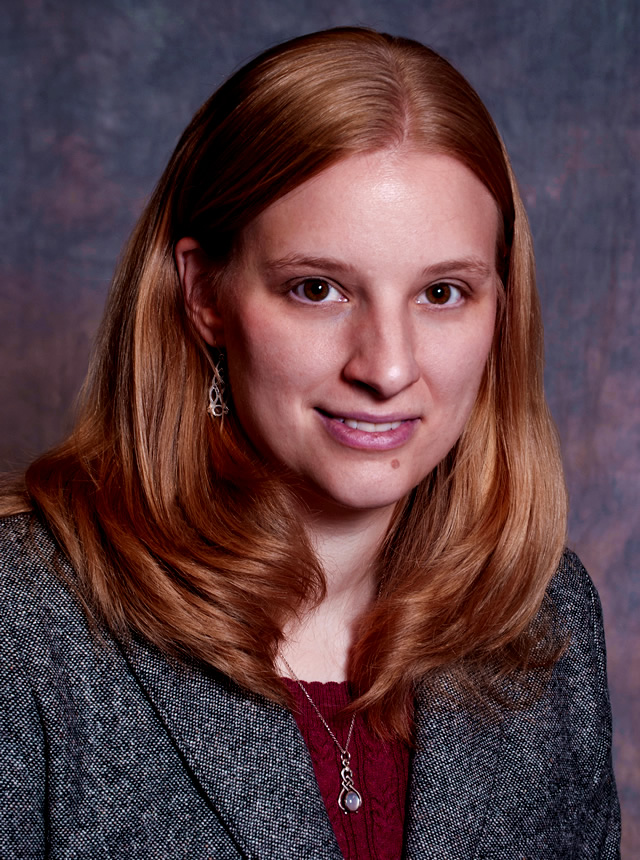
PHILADELPHIA (September 27, 2019) – Researchers at Fox Chase Cancer Center have discovered a correlation between higher patient volume at cancer facilities and improved survival in two studies of patients with advanced cancer. These results underscore the ability of a higher-volume facility to provide patients with more experience, expertise, and access to resources.
“Centers of excellence see a lot of a certain kind of cancer and tend to have better outcomes,” said Daniel M. Geynisman, MD, an assistant professor in the Department of Hematology/Oncology at Fox Chase and a collaborating member of the Blood Cell Development and Function Program. “If a doctor sees 100 cases of a disease versus two, you have better expertise, access to new therapies, more clinical trials, and multidisciplinary teams dedicated to treating the disease.”
Previous studies of more localized, potentially curable, cancer types that were not metastatic have shown a similar trend of increased survival at higher-volume centers.

“We looked at whether this holds true for patients with more advanced disease,” said Elizabeth Handorf, PhD, assistant professor in the Biostatistics and Bioinformatics Facility.
Handorf, Geynisman, and their colleagues gleaned past data from the National Cancer Database from between 2004 and 2013 and assessed the association between survival and treatment volume in patients with two different advanced cancer types.
In a study of patients with metastatic renal cell carcinoma (mRCC), the researchers gathered data on 41,836 patients treated at 1,222 facilities. Patients were divided into cohorts based on whether they had active treatment, systemic therapy, systemic therapy at the reporting institution, or systemic therapy at the reporting institution with known liver and lung metastatic status.
The researchers calculated patient survival based on treatment facility volumes, controlling for important patient characteristics. The researchers found that survival increased as patient volume increased.
In the second study, the researchers collected data for 64,815 men with Stage T4, N+, or M+ advanced prostate cancer (aPC). They divided patients into groups based all patients with aPC, only Stage M0 aPC, or only Stage M1 aPC, and based on treatment volume. The investigators also quantified nonlinear relationships between volume and overall survival.
Patient survival improved as hospital volume increased. The association between patient volume and improved survival remained after categorizing the patients according to disease and treatment characteristics.
Geynisman stressed that lower volume facilities provide good care for most patients, but that “complex care may be better provided at high-volume centers.”
The first study, “Treatment Facility Volume and Survival in Patients With Metastatic Renal Cell Carcinoma: A Registry-based Analysis,” was published in European Urology.
The second study, “Treatment Facility Volume and Survival in Patients With Advanced Prostate Cancer,” was published in European Urology Oncology.